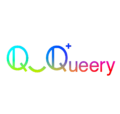Resources

Expert consensus on facilitating the coming-out
David T. Solomon, Oakleigh M. Reed, Jessica R. Sevecke, Tiffany O’Shaughnessy & Ignacio D. Acevedo-Polakovich (2018) Expert consensus on facilitating the coming-out process in sexual minority clients: A Delphi study, Journal of Gay & Lesbian Mental Health, 22:4, 348-371
This article presents the results of a Delphi study conducted to generate expert consensus about the best techniques for working with clients in the coming-out process. The initial expert interview phase (N1⁄419) generated a list of sugges- tions, including two therapist prerequisites, 11 suggestions for creating a welcoming environment, 15 areas of assessment, seven areas of psychoeducation, and 46 other specific techni- ques. During a second phase, the perceived helpfulness of these suggestions was rated by experts. The most highly rated techniques generally focused on guiding clients towards mak- ing their own coming-out decisions (e.g., “Allow the client to make his or her own decisions about how out to be, and to whom”), expressing a gay-positive attitude (e.g., “Discuss sexual minority identity as normal”), and helping clients prepare for coming-out disclosures (“Help the client to create a safety plan to address the possible negative outcomes of disclosure”).
- Massa at amet arcu
- Semper etiam mattis morbi
Predictors and outcomes of initial coming out messages
Yachao Li & Jennifer A. Samp (2019) Predictors and outcomes of initial coming out messages: testing the theory of coming out message production, Journal of Applied Communication Research, 47:1, 69-89
Sexual orientation disclosure can result in both positive and negative consequences. Utilizing the theory of coming out message production (COMP; Li & Samp, 2018), this study explored when and how disclosure messages predict more positive reports of psychological well-being. Lesbian, gay, and bisexual participants (N = 251) reported their experiences of first ever coming out to others in face-to-face settings. Results showed that when people’s disclosure goals become more salient, they tend to perceive greater desire to change their current outness levels toward the disclosure receivers, which in turn predict higher degrees of disclosure. When people are highly motivated, their perceived relational power over receivers also positively predicts degrees of disclosure. Regardless of receivers’ reactions, greater salience of disclosure goals and higher degrees of disclosure predict fewer depressive symptoms and higher self-esteem. This study supports COMP and provides practical implications for when, to whom, and how individuals first come out.
- Massa at amet arcu
- Semper etiam mattis morbi


Fairness for Unobserved Characteristics: Insights from Technological Impacts on Queer Communities
Tomasev, N., McKee, K.R., Kay, J., and Mohamed, S. Fairness for unobserved characteristics: Insights from technological impacts on queer communities. Proc. of the 2021 AAAI/ACM Conference on AI, Ethics, and Society. ACM, New York, 2021, 254–265
Advances in algorithmic fairness have largely omitted sexual ori- entation and gender identity. We explore queer concerns in pri- vacy, censorship, language, online safety, health and employment to study the positive and negative effects of artificial intelligence on queer communities. These issues underscore the need for new directions in fairness research that take into account a multiplicity of considerations, from privacy preservation, context sensitivity and process fairness, to an awareness of sociotechnical impact and the increasingly important role of inclusive and participatory re- search processes. Most current approaches for algorithmic fairness assume that the target characteristics for fairness—frequently, race and legal gender—can be observed or recorded. Sexual orientation and gender identity are prototypical instances of unobserved charac- teristics, which are frequently missing, unknown or fundamentally unmeasurable. This paper highlights the importance of developing new approaches for algorithmic fairness that break away from the prevailing assumption of observed characteristics.
- Massa at amet arcu
- Semper etiam mattis morbi

